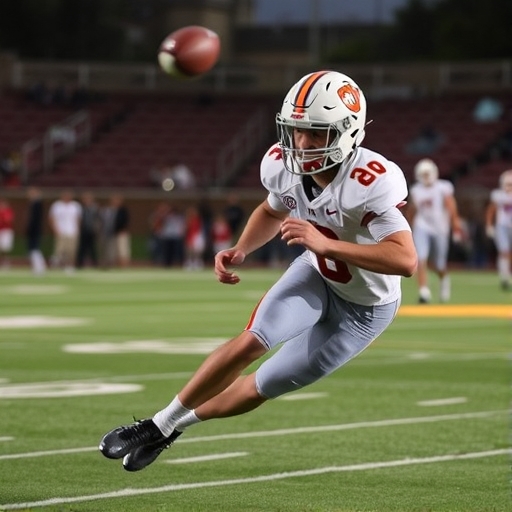Can Grad Students Play College Sports?
The landscape of college sports is often associated with undergraduates, but a question that occasionally arises is whether graduate students can participate in college athletics. This article explores the eligibility of graduate students to compete in college sports, the rules governing participation, and the unique challenges graduate student-athletes face.
Understanding NCAA Eligibility
To understand the eligibility of graduate students in college sports, it’s essential to first comprehend the National Collegiate Athletic Association (NCAA) regulations. The NCAA is the primary governing body for college athletics in the United States, and their rules dictate who can compete at the collegiate level.
NCAA Divisions Overview
The NCAA is divided into three divisions:
- Division I: The highest level of competition, with the largest athletic budgets and most extensive recruiting.
- Division II: A middle ground, balancing athletics and academics with a focus on participation and regional competition.
- Division III: Prioritizes the overall college experience of student-athletes, with no athletic scholarships.
- Previous Participation: If a graduate student has previously competed at the NCAA level, their eligibility may be affected.
- Academic Standing: Graduate students must maintain satisfactory academic progress in their program.
- Amateur Status: They must not have received any benefits that would compromise their amateur status.
- Transfer Rules: If a graduate student transfers from another institution, they must comply with NCAA transfer rules.
- Graduate students must be enrolled full-time in their graduate program.
- They should be aware of the academic requirements specific to their sport and institution.
- Each sport may have additional eligibility criteria that graduate students must meet.
- Time commitment required for training and competition
- Potential impact on academic performance
- Financial implications
- The institution’s support for graduate student-athletes
Each division has specific eligibility requirements for student-athletes, including academic performance, amateur status, and duration of eligibility.
Graduate Student Eligibility
General Eligibility Rules
Graduate students can participate in college sports, but their eligibility depends on several factors, including:
Specific Guidelines for Graduate Students
1. Eligibility Period: Graduate students typically have five years of eligibility for NCAA sports, starting from when they first enroll in college.
2. One-Time Transfer Exception: Graduate students can transfer without sitting out a year if they are pursuing a graduate program not offered at their previous institution.
3. Participation Limits: Graduate students are still subject to the same participation limits as undergraduates, meaning they can only compete for a certain number of seasons.
Key Points to Consider
Challenges Faced by Graduate Student-Athletes
While participating in college sports can be an exciting opportunity for graduate students, it also presents a unique set of challenges:
Time Management
Balancing graduate studies with athletic commitments can be daunting. Graduate programs often require a significant amount of time for research, coursework, and fieldwork, making it challenging for student-athletes to juggle both responsibilities.
Financial Considerations
While undergraduates may receive athletic scholarships, graduate students often do not have the same opportunities. They may face higher tuition costs and limited financial aid options, which can impact their decision to participate in athletics.
Academic Pressure
Graduate programs are generally more rigorous than undergraduate studies. The pressure to perform academically can lead to heightened stress, particularly when combined with the demands of training and competition.
Social Dynamics
Graduate students may find it challenging to connect with undergraduates on their teams, leading to potential feelings of isolation. The age difference and varying life experiences can create a divide between graduate and undergraduate athletes.
Comparison of Eligibility Across NCAA Divisions
| Aspect | Division I | Division II | Division III |
|---|---|---|---|
| Eligibility Duration | 5 years from first enrollment | 5 years from first enrollment | 5 years from first enrollment |
| Scholarship Availability | Full/partial scholarships available | Partial scholarships available | No athletic scholarships |
| Graduate Student Transfer | One-time transfer exception | One-time transfer exception | No limit on transfers |
| Focus on Academics | High emphasis on athletics | Balance of academics and athletics | Primarily on academics |
FAQs
Can graduate students receive athletic scholarships?
Generally, NCAA Division III institutions do not offer athletic scholarships, while Division I and II schools may provide partial scholarships to graduate students, depending on the specific program and institution.
Are there specific sports that are more open to graduate students?
While eligibility rules apply across all sports, some sports may have a more established culture of graduate student participation, such as basketball, soccer, and track and field.
What should graduate students consider before joining a college sports team?
Graduate students should consider the following:
Do all colleges allow graduate students to compete in sports?
Not all colleges have the same policies regarding graduate student participation in athletics. It’s essential for prospective graduate student-athletes to inquire about specific eligibility rules at their chosen institution.
Final Thoughts
In conclusion, graduate students can indeed participate in college sports, but their eligibility is subject to various NCAA regulations and institutional policies. While the opportunity to compete at the collegiate level can be rewarding, it also comes with specific challenges that require careful consideration. Graduate students interested in athletics should weigh their academic responsibilities against their athletic aspirations, seeking a balance that enables them to thrive both in their studies and on the field.
As the landscape of college athletics continues to evolve, institutions may adapt their policies regarding graduate student participation, making it essential for prospective student-athletes to stay informed about current regulations and opportunities. Whether you are a graduate student considering joining a sports team or an institution looking to support your graduate athletes, understanding the nuances of eligibility and participation is crucial for fostering a successful athletic experience.





